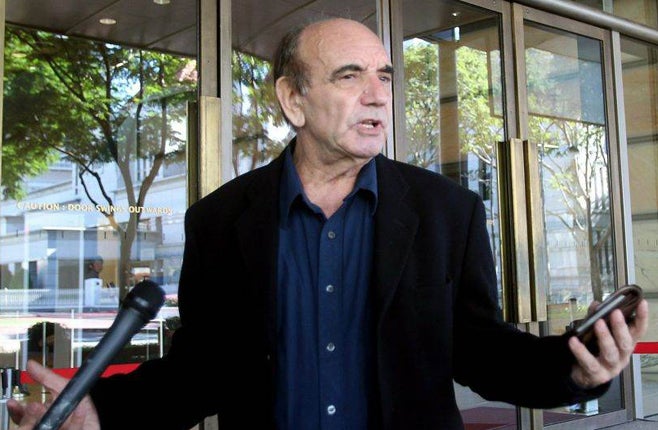British author faces jail for criticising Singapore's judiciary

Your support helps us to tell the story
From reproductive rights to climate change to Big Tech, The Independent is on the ground when the story is developing. Whether it's investigating the financials of Elon Musk's pro-Trump PAC or producing our latest documentary, 'The A Word', which shines a light on the American women fighting for reproductive rights, we know how important it is to parse out the facts from the messaging.
At such a critical moment in US history, we need reporters on the ground. Your donation allows us to keep sending journalists to speak to both sides of the story.
The Independent is trusted by Americans across the entire political spectrum. And unlike many other quality news outlets, we choose not to lock Americans out of our reporting and analysis with paywalls. We believe quality journalism should be available to everyone, paid for by those who can afford it.
Your support makes all the difference.A British author faces a possible jail term in Singapore after being convicted yesterday of contempt of court for criticising the city-state's judiciary in a book on its use of the death penalty.
Alan Shadrake, 75, who divides his time between Malaysia and Britain, will be sentenced next Tuesday. A High Court judge, Quentin Loh, found he had employed "a dissembling and selective background of truths and half-truths, and sometimes outright falsehoods".
Shadrake was arrested in July, after he arrived in Singapore to promote his book, Once a Jolly Hangman: Singapore Justice in the Dock. It contains a profile of Darshan Singh, a former chief executioner at Singapore's Changi Prison, who – according to the author – put to death about 1,000 men and women between 1959 and 2006, when he retired.
The book also features interviews with human rights activists, lawyers and former police officers about cases involving capital punishment. Amnesty International estimates that Singapore – where the death penalty is mandatory for murder, drug trafficking and treason – has one of the world's highest per capita execution rates.
Shadrake, an investigative journalist and prolific author, was accused of casting doubt on the judiciary's independence, impartiality and integrity. Justice Loh said in a written judgment: "This is a case about someone who says, among other things, the judges in Singapore are not impartial ... [and are] influenced by political and economic situations and biased against the weak and the poor."
He added: "A casual and unwary reader, who does not subject the book to detailed scrutiny, might well believe his claims ... and in so doing would have lost confidence in the administration of justice in Singapore."
Shadrake, who was freed on bail but had his passport confiscated, reacted cautiously to the verdict. "I think I've been given a fair hearing," he told the media, adding that he would discuss the matter with his lawyer before deciding whether to appeal.
Under Singapore law, he faces a jail term or a fine, or both. While the offence carries a maximum two-year term, prosecutors had asked for a sentence of between three and six months.
Justice Loh said Shadrake would be given the opportunity to "make amends" for his book, but did not say what that might entail, or whether it would affect his sentence. He said the court had no interest in stifling debate on the death penalty, and was constitutionally bound to protect every citizen's right to engage in such debate.
Amnesty has in the past accused Singapore of using strict defamation laws to stifle dissent.
Join our commenting forum
Join thought-provoking conversations, follow other Independent readers and see their replies
Comments